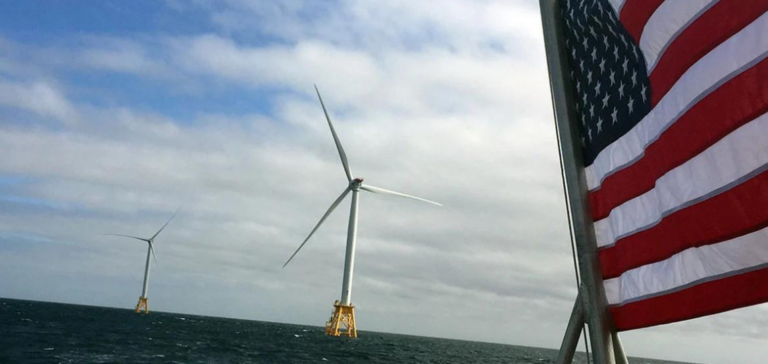One year after the passage of the largest climate change legislation in U.S. history, designed to trigger a boom in U.S. clean energy development, economic realities threaten President Joe Biden’s agenda. Rising financing and materials costs, unreliable supply chains and slow regulation in Washington have led to significant difficulties for the clean energy industry.
Problems and progress in clean energy
Offshore wind turbine projects have been cancelled, and plans to manufacture electric vehicles (EVs) have been scaled back. This predicament for Biden, who has pledged to achieve a net zero emissions economy by 2050, demonstrates that the billions in tax credits from the Inflation Reduction Act are not enough to solve these challenges.
Challenges of climate legislation
At the UN climate summit in Egypt last year, Biden highlighted the legislation as evidence of unprecedented progress in the fight against climate change. However, it’s likely that he won’t be attending this year’s event in Dubai, despite the alarming warnings about global warming.
The energy industry faces headwinds
Clean energy experts believe that these setbacks will make America’s ambitious mid-century decarbonization goals even harder to achieve.
“Although we are seeing steady growth, the current level is not enough to achieve these objectives.”
says John Hensley, vice-president of the American Clean Power Association.
Future prospects for clean energy development
More than 56 gigawatts of clean energy projects, enough to power nearly 10 million homes, have been delayed since the end of 2021. Solar installations account for two-thirds of these delays, partly due to US import restrictions aimed at combating forced labor and tariff evasion in a supply chain dominated by Chinese products.
Bureaucratic hurdles and infrastructure: major obstacles to renewable energy
Issues such as permit congestion, local conflicts over the location of solar and wind projects and a grid connection process that can take an average of five years are also cited by developers as among the industry’s biggest challenges.
Prakash Sharma, Vice-President of Scenarios and Technologies at Wood Mackenzie, points out that despite increased investment in certain areas, difficulties with the permits and approvals needed to move projects forward, or with infrastructure development, remain problems that legislation cannot solve.
Rising costs and cautious optimism in the renewable energies sector
Strong demand and limited supply for renewable energies have also led to higher contract prices, which could mean higher costs for consumers. Solar contract prices rose by 4% to reach $50/MWh for the first time in the third quarter.
Vic Abate, Managing Director of GE Vernova’s wind business, acknowledges that progress is slower than expected, but remains confident in the overall trajectory.
“I’m not betting against legislation”.
he says, estimating that achieving the objectives will probably take longer than initially anticipated.
The legislation aims to strengthen the US clean energy supply chain by encouraging domestic production of equipment such as solar panels and wind turbines. However, manufacturers have recently warned that a wave of new Asian capacity threatens the viability of dozens of planned US plants.
Turbulence in the offshore wind industry: multifaceted challenges
The upheaval in the emerging US offshore wind industry is perhaps the most publicized setback. Developers such as Orsted, BP and Equinor have sought to renegotiate or cancel contracts due to escalating costs, and have recorded multi-billion dollar write-downs on projects. Players also largely shunned a federal sale of wind leases in the Gulf of Mexico in August. The Biden administration’s goal of deploying 30 gigawatts of offshore wind power by 2030 is now widely regarded as unattainable.
Meanwhile, some companies are delaying investment decisions while waiting for the Treasury Department to draw up rules on the use of legislative tax credits. Robert Walther, Director of Federal Affairs at ethanol manufacturer POET, for example, is waiting to see whether corn-based sustainable aviation fuel can qualify as a feedstock.
Nevertheless, the United States can be proud of the way it approaches climate change, particularly in relation to the Trump administration’s relatively recent efforts to roll back climate protection policies.
“These are the normal ups and downs of clean energy development and deployment.”
says Stanford University researcher Dan Reicher.
“I think we can go to the COP with our heads held high, showing that we are making real progress.”
Despite economic and logistical challenges, the United States is making progress in the fight against climate change.






















